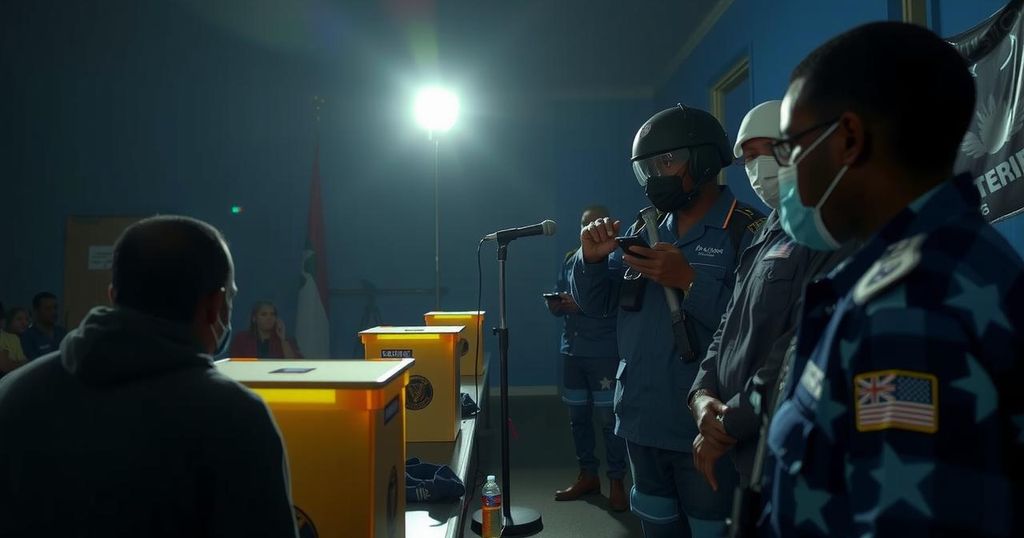Mauritius Faces General Election Amid Wire-Tapping Controversy

Mauritius is preparing for a general election on November 10, 2024, amid a significant wire-tapping scandal that has raised civil rights concerns. The election occurs following a historic UK-Mauritius agreement concerning the Chagos Islands. Prime Minister Pravind Jugnauth, amid political turmoil and public backlash against government scandals, faces challenges from opposition leaders seeking change and accountability.
Mauritius is set to hold its general election on Sunday, November 10, 2024, amidst a significant wire-tapping scandal that has raised concerns about the erosion of civil rights in the nation. This election comes on the heels of a historical agreement between Mauritius and Britain, which involved the transfer of the Chagos Islands back to Mauritius after years of legal disputes. However, the political atmosphere has been charged since leaked recordings of conversations among government officials and journalists emerged in October, damaging Prime Minister Pravind Jugnauth’s re-election prospects. In response to the outcry from political opponents, the government attempted to implement a social media ban, but was forced to retract this decision within 24 hours due to public backlash. The electorate comprises over one million registered voters, who will participate in the country’s 12th legislative election since gaining independence in 1968. Notably, critiques of governmental functioning and rising corruption have surfaced, indicating potential systemic issues within Mauritian democracy. Roukaya Kasenally, a democracy researcher, emphasized the failures of institutions designed to ensure accountability and highlighted procurement scandals related to the Covid-19 pandemic as hallmarks of this decline. The troubling dynamics within the country were reflected in the Ibrahim Index, which indicated a recent decline in governance performance, particularly noting the heightened discrimination faced by the Creole population. Leading the government currently, Prime Minister Jugnauth aims to secure a new five-year mandate following his party’s prior electoral success. However, his main opponent, former Prime Minister Navin Ramgoolam, alongside a new coalition, seeks to challenge the long-established political families that have dominated the landscape since independence. The recent wire-tapping incidents further complicate the campaign environment, with calls for greater government transparency gaining traction among voters. Furthermore, the ongoing geopolitical implications surrounding the Chagos Islands agreement with Britain, which includes a US military presence, present potential additional layers of complexity to the election. As the general election approaches, the Mauritian electorate finds itself at a crossroads, where pivotal governance issues and accusations of malfeasance are shaping democratic participation.
Mauritius has a history of political stability and economic growth since gaining independence from Britain in 1968. The island nation has been renowned for its effective governance and robust economy, which includes vital sectors such as tourism, manufacturing, and financial services. However, the recent wire-tapping scandal has drawn attention to possible deterioration in the political climate and has pointed out the systemic corruption and governance setbacks faced by the country. The upcoming legislation elections are critical as voters respond to ongoing political challenges and the management of societal inequalities, especially concerning the Creole population.
In conclusion, as Mauritius approaches its crucial general election, the underlying issues stemming from the wire-tapping scandal and concerns regarding systemic corruption have brought significant scrutiny to the current administration. Despite recent diplomatic successes, such as the agreement regarding the Chagos Islands, the political landscape remains fraught with challenges that could shape the future of Mauritian democracy and governance. The electorate’s response will likely reflect their demand for accountability and effective leadership in addressing underlying disparities and safeguarding their democratic institutions.
Original Source: www.seychellesnewsagency.com







